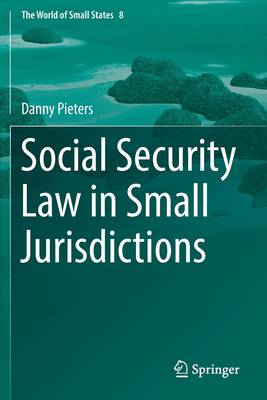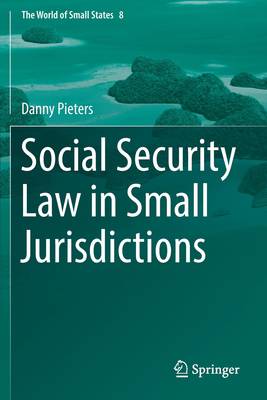
- Retrait gratuit dans votre magasin Club
- 7.000.000 titres dans notre catalogue
- Payer en toute sécurité
- Toujours un magasin près de chez vous
- Retrait gratuit dans votre magasin Club
- 7.000.0000 titres dans notre catalogue
- Payer en toute sécurité
- Toujours un magasin près de chez vous
Description
The book examines whether small jurisdictions (states) are confronted with specific issues providing social security and how to deal with these issues. How is social security law impacted by the smallness of the jurisdiction? First, the author examines the key concepts 'small jurisdiction' and 'social security' as he understands them in the present research. He then pays some attention to the relation between social security and social security law and subsequently makes an excursion to explore the notion of legal transplants. In the second part, the author first examines the main features characterizing small states according to the general literature on small states, focusing on features which may be relevant to social security. He also includes an overview of the (limited) literature dealing with the specific social security issues small jurisdictions have to deal with. In other words, the second part provides the reader with the status quaestionis. In the third part, the author takes a look at the social security systems of 20 selected small jurisdictions. He does so according to a uniform scheme, in order to facilitate their comparison. These 20 case studies allow him in a next part to test the correctness of the statements made in Part 2. In the fourth part, he compares the social security systems of the 20 small jurisdictions. He draws conclusions as to the main question, but also to test the validity of the current literature on the topic as described in Part 2. Special attention goes to the use of legal transplants for the definition of the personal scope of social security arrangements. In the concluding part of the book, the author formulates some suggestions for the benefit of the social security systems of the small jurisdictions, based on his research.
Spécifications
Parties prenantes
- Auteur(s) :
- Editeur:
Contenu
- Nombre de pages :
- 324
- Langue:
- Anglais
- Collection :
- Tome:
- n° 8
Caractéristiques
- EAN:
- 9783030782498
- Date de parution :
- 20-08-22
- Format:
- Livre broché
- Format numérique:
- Trade paperback (VS)
- Dimensions :
- 156 mm x 234 mm
- Poids :
- 480 g

Les avis
Nous publions uniquement les avis qui respectent les conditions requises. Consultez nos conditions pour les avis.






